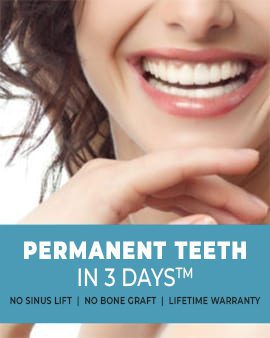Sep 28, 2024
As we step into the future, the field of dentistry is poised to undergo a revolutionary transformation. By 2050, advances in technology, biotechnology, and artificial intelligence will not only change how dental care is delivered but also redefine our relationship with oral health. From personalized treatments to self-repairing teeth, the future promises a seamless blend of science fiction and dental science.
Smart Dentistry for Smarter Smiles
One of the most anticipated advancements in dentistry involves the integration of artificial intelligence (AI). By 2050, AI-powered diagnostic tools will become the norm, providing dentists with the ability to predict and prevent oral health issues before they develop. Imagine a world where regular dental checkups involve AI scanners that detect cavities, gum disease, or misalignments at their earliest stages, offering customized solutions in real time.
Even dental cleanings might become automated. Robotic tools equipped with sensors and AI capabilities could perform intricate cleaning procedures with unmatched precision, ensuring optimal oral hygiene while making visits faster and more comfortable.
Regrowing Teeth with Stem Cell Therapy
The dream of regenerating lost or damaged teeth could become a reality by mid-century, thanks to advancements in stem cell research. By harnessing the body’s regenerative capabilities, scientists are already experimenting with techniques to grow new teeth in a laboratory setting. By 2050, this could translate to in-office procedures where patients with missing teeth regrow their own replacements, eliminating the need for prosthetics or implants.
Stem cell therapy could also help repair enamel erosion, one of the most common dental issues today. Instead of synthetic restorations, patients may benefit from natural regrowth, ensuring stronger and longer-lasting teeth.
Biotech and Self-Healing Teeth
Materials science is another frontier set to reshape oral health. In the future, self-healing dental materials could become commonplace, allowing teeth to repair minor cracks or cavities without intervention. These materials, combined with bioengineered enamel, would render many traditional dental treatments obsolete, as your teeth essentially “fix themselves.”
Additionally, advancements in nanotechnology may lead to the development of microscopic bots, or “nanobots,” capable of repairing damaged teeth and gums at the cellular level. These tiny assistants could perform tasks ranging from plaque removal to gum regeneration without the patient feeling a thing.
Virtual Reality for Anxiety-Free Dentistry
For many, fear of the dentist’s chair remains a significant barrier to care. By 2050, virtual reality (VR) may offer a solution. Patients could don VR headsets that transport them to calming environments, such as a tranquil beach or serene forest, while dental work is performed. This technology could revolutionize patient comfort, especially for those with dental anxiety or phobias.
A Bright Horizon for Oral Health
The future of dental care holds promises that were once confined to science fiction. With AI, regenerative medicine, and self-repairing technology, the way we approach oral health will be unrecognizable from today. By 2050, dental care will be faster, more personalized, and far less invasive, ensuring that everyone can achieve and maintain a perfect smile with ease.
As these advancements unfold, they will not only improve oral health but also enhance our overall quality of life, making dental care a seamless and integral part of our future wellbeing.
 |
 |
 |
Time to Get in Touch With Us!!
For more information about the Smile Makeover in India, get in touch with Dr. Motiwala’s Dental Clinic & Implant Center at +91 99596 14584. Simply fill out the form on our CONTACT US page.





